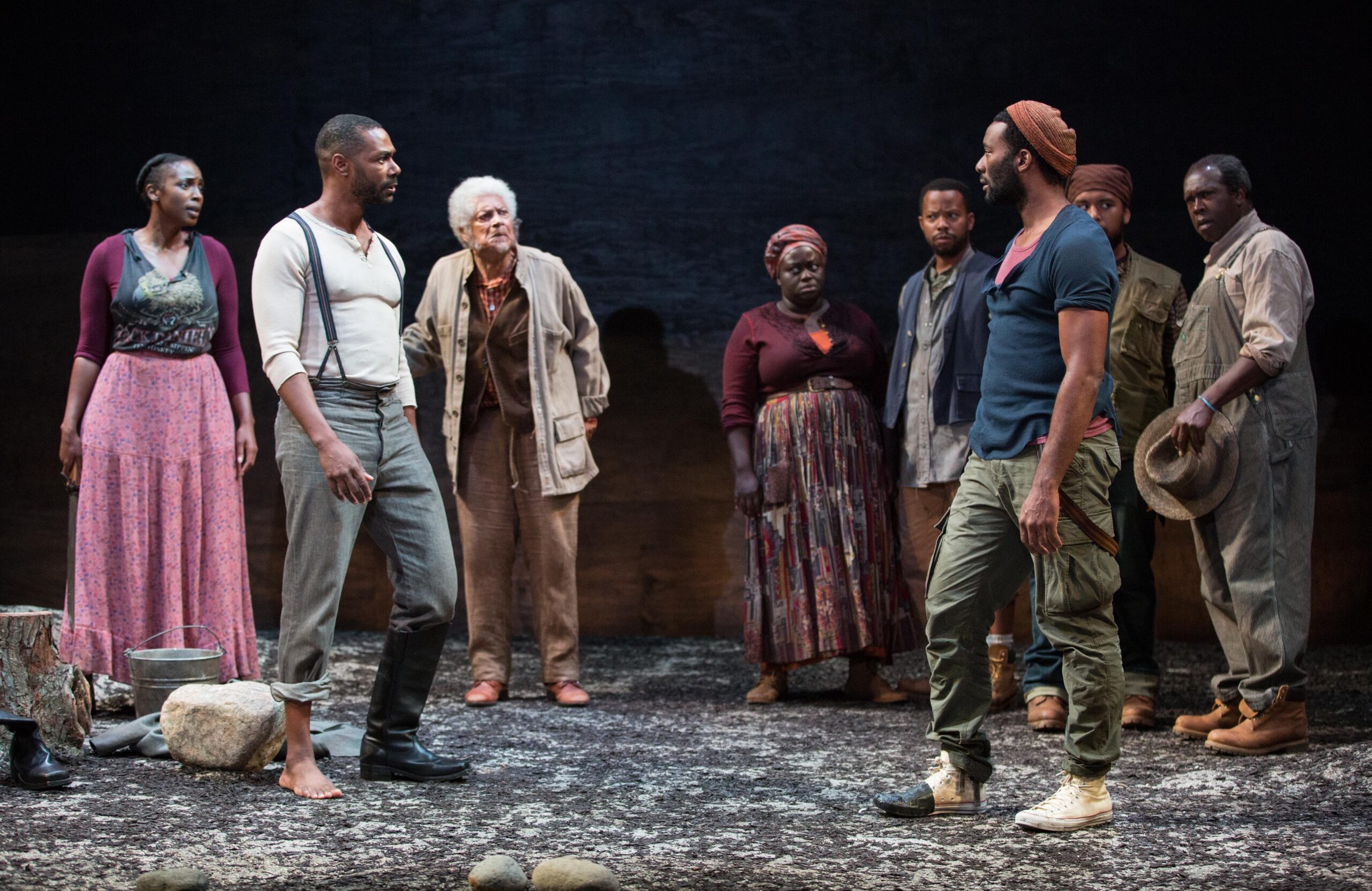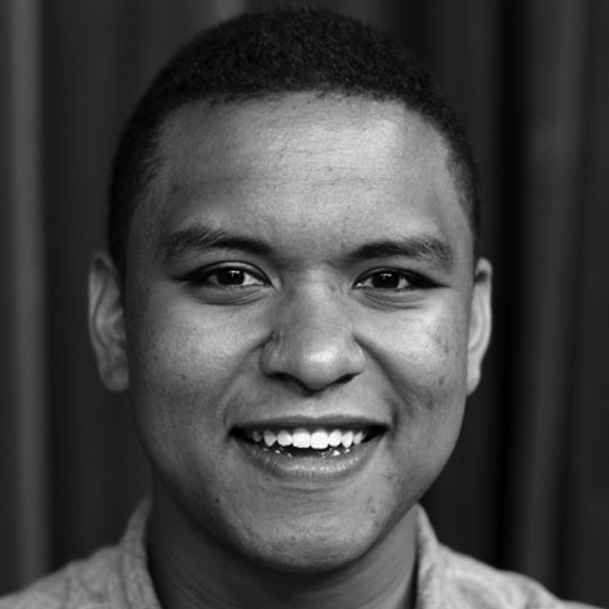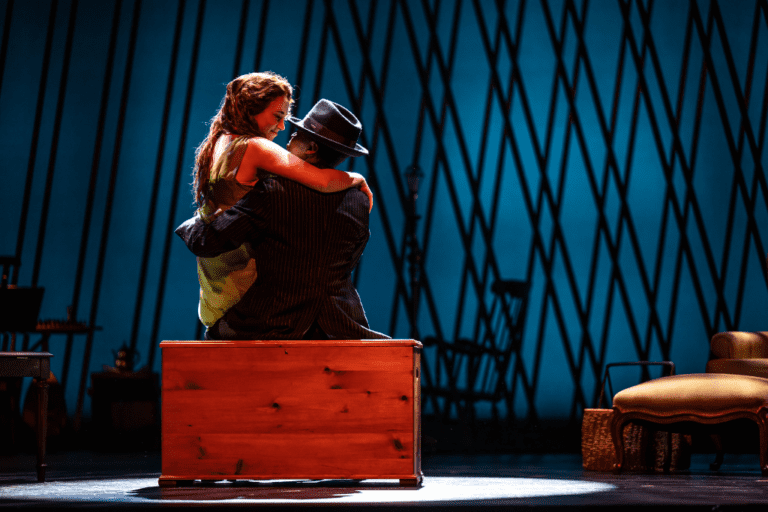Where is Freedom, Really?
There was a moment during the rehearsals for Father Comes Home From the Wars (Parts I, II, III) that I had trouble explaining to my fellow Soulpepper company members. Alongside the praise for my fellow castmates and for Suzan-Lori Parks’ script, I became emotional speaking of this one particular experience. During table work, I had brought up a video by the Hollywood Reporter: “Tonys Actor Roundtable: 7 Broadway Standouts on Diversity and Rude Audiences.” (For those of you who have yet to see it, the video discusses how Hollywood’s diversity should follow in Broadway’s footsteps. However, it puts this discussion into the mouths of seven “Broadway standouts”—all male, one person of colour.) Despite the incredible openness I was already witnessing in the rehearsal room, I was hesitant to bring up the video. I worried that my anger at the video’s hypocrisy would alienate me, but I thought it drew an important parallel to a scene. To my surprise and joy, I didn’t see a glossing over of or shying away from a discussion. Instead, I saw an understanding of my discontent. The people in this room shared my experience of frustration. They not only saw my point, we mined this frustration—this shared experience—and injected it into the work.
It was then that a simple but significant fact hit me: this project was my introduction to a community that I hadn’t previously worked with—a community that, funnily enough, I consider myself to be a part of. Father Comes Home From the Wars was finally an opportunity to learn from, play opposite, and create with different generations of Canada’s black theatre artists. It has been an awakening for me in terms of my perception of my place in the rehearsal hall.

Roy Lewis, Akosua Amo-Adem, Dion Johnstone, Lisa Berry, Marcel Stewart, and Peter Fernandes in Father Comes Home From The Wars, Soulpepper. Photo by Cylla von Tiedemann
These moments of shared understanding occurred again and again over the course of several rehearsals. As the list of events grew, my fear, worry, and hesitancy to speak was replaced by a feeling of openness, an unfamiliar sense that my voice and opinion were appreciated. Someone would bring up the Black Lives Matter protest during the Pride Parade, the back-to-back murders of Alton Sterling and Philando Castile, or Jesse Williams’ BET Awards Speech, and, with each event, and the discussion that ensued, the words in Father Comes Home From the Wars grew stronger, the importance of putting up this production grew clearer, and the word FREEDOM bellowed. This made me think: Why was I hesitant to speak up that one day in rehearsal? Why was I surprised when I realized my castmates could relate to my experience? Why was I moved to speak of that small interaction?
I realize that because I have so often been one of the few actors of colour in a rehearsal hall—if not the only one—I have been conditioned to expect a certain response when I bring up issues of diversity or my experience as a visible minority. I have been conditioned, most times not maliciously or purposely, to think my experience as a black artist does not apply to the process, that I should suppress my need to speak as it derails the momentum of a piece, that the anger and frustration in the pit of my stomach is mine alone, and that an audience could not empathize or relate to that point of view. I have been conditioned to fear being seen as an instigator of conflict. I have been conditioned to leave my pain at the door when my heart is breaking because another member of our community has been shot dead. I realized this conditioning was also creeping into how I interacted with people in my personal life; I feared expressing myself as a minority. Being surrounded by diverse theatre creators gave me the freedom to speak as myself, unburdened by the pressures to represent my race. Father Comes Home From the Wars put me in a room where my experience as an actor of colour is not only understood and recognized, but valued.

Walter Borden and Dion Johnstone in Father Comes Home From the Wars, Soulpepper. Photo by Cylla von Tiedemann
While we have shared experiences, the different generations in the rehearsal hall bring varying perspectives of how being an actor of colour has developed over the years: where the journeys and revolutions of the past have taken us and where the struggles still persist. The room is a breeding ground of understanding, strength, development, and, most importantly, mentorship. In the past I would look to the senior members of a company for guidance and while their experience and lessons were incredibly valuable, a portion of my development as an artist was stunted because I could not share an important part of myself.
Father Comes Home From the Wars asks where a person’s worth comes from and investigates freedom: what it meant during the American Civil War, how it has transformed, how it is praised or bastardized, what we think freedom means today, how we should question that, and how all those definitions and experiences intertwine and affect each other. The show’s musings on freedom and self-worth reverberate in my rehearsal experience. The play makes me reflect on when I feel free to speak, what structures frame or devalue me, and how those structures affect the limits and value I put on myself.
Because this is a piece that focuses on the African-American experience through time, it’s easy to see where our casts’ voice can be heard through Parks’ work. However, my surprise at the ability to look into the faces of my cast and see understanding and familiarity is evidence of a troubling theatre dynamic. This rehearsal process highlights how there are missed opportunities for a person of colour’s experience to be seen through all works. Our relationship as people of colour can be just as valid to the rehearsing of Shakespeare, the Greeks, or Shaw as it is to A Raisin in the Sun. It should not be a rarity to have my experience as a visible minority be valued. This process for me reinforces how representation in all aspects of a production should be a top priority, not an afterthought. Diversity breeds discussion, openness, and creativity. It breeds freedom.
Father Comes Home From the Wars (Parts I, II, III), on at Soulpepper and starring Peter Fernandes, has been extended until September 1.
For tickets or more information, click here









Comments